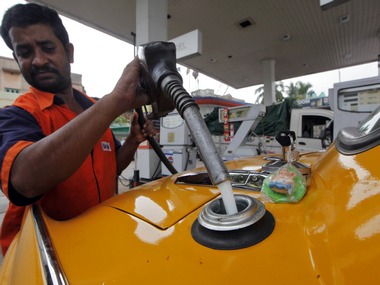It was bound to happen. The imposition of an additional tax on diesel cars at a time when auto sales are sluggish and interest rates are at its peak, have begun to affect the demand for diesel variants too.
A Business Standard report today said that dealers across the country are offering various discounts and value-added services to lure consumers to buy diesel cars before the additional tax comes into effect.
Unable to raise diesel prices due to political compulsions, the finance ministry is looking to raise excise duty on diesel cars to discourage consumption of this subsidised fuel by personal vehicle owners. Oil minister S Jaipal Reddy has proposed a ‘Special Tax’ on diesel cars to help recover at least part of the deficit in the oil import bill. The proposed tax adds Rs 1.7 lakh to the price tag of a small diesel car, and Rs 2.5 lakh to bigger cars and SUVs.
[caption id=“attachment_344664” align=“alignleft” width=“380” caption=“Reuters”]  [/caption]
Typically, free insurance, exchange bonuses, cash discounts and lower interest rates on cars are consumer benefits offered to spur petrol variants as petrol prices rose sharply after the government deregulated the fuel in 2010. But the situation is no longer the same. Dealers have begun offering these benefits on diesel variants to in order to liquidate stock. The report, quoting an auto analyst, said “Though diesel is still preferred over petrol, many buyers preponed their purchase to escape the proposed tax on diesel vehicles. There could be a vacuum for new buyers for a few months. The market is bottoming out now, and manufacturers will have to balance it with consumer benefit offers for slowing products.”
The auto manufacturers are up in arms because they feel the proposed tax would make an already slow market even slower, and that too when most auto majors have altered their production plans in favour of diesel variants. Mahindra and Mahindra has already put off plans for investment in a new plant until this issue is resolved. If the government proposal is accepted M&M will be the worst hit as almost 100 percent of its product portfolio comes under the diesel category.
And this will also do nothing to prop waning foreign interest. Millions of dollars have been invested in increasing diesel capacity in India. “Now, everybody is investing in diesel engine plants and therefore all of these plans will get jeopardised. This kind of sudden change in policy has an impact on the long-term investment decisions of auto companies”, said Pawan Goenka , president (automotive and farm equipment sector), Mahindra & Mahindra recently. He added that companies like General Motors and Ford that have invested heavily in the diesel engine plant would find it very difficult to go back to their (company) boards and explain this diesel demand didn’t materialise and this will jeopardise their future investment in diesel technology, he added.
Impact Shorts
More ShortsIndustry body SIAM has also cautioned that the growth forecast for this year for auto sales at 11-13 percent will be missed if the additional tax is imposed.
“Trying to impose a tax on diesel is not the way to solve the problem that will not necessarily move demand back to petrol from diesel but it will kill demand. In fact not all diesel vehicles are substitutable with a petrol model. Just by making diesel less attractive you are not making petrol more attractive”, Goenka had said after meeting finance secretary R S Gujral last week.
And it is not a corollary, that with this hike in the excise duty on diesel cars customers will shift to petrol vehicles, that continue to be expensive. In this seeming leveling of the playing fields we might be harming the auto sector more that we realise.


)

)
)
)
)
)
)
)
)



